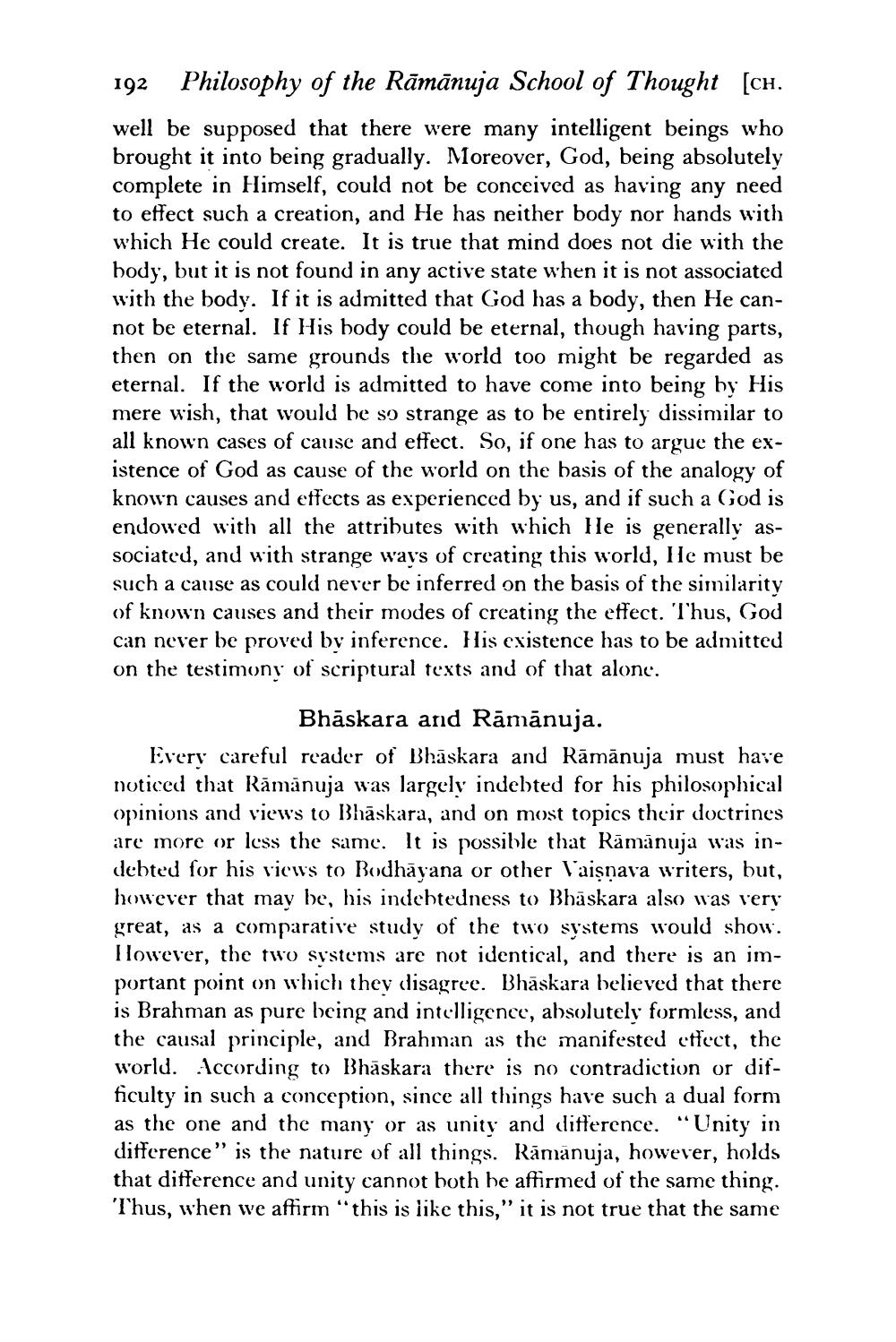________________
192 Philosophy of the Rāmānuja School of Thought [ch. well be supposed that there were many intelligent beings who brought it into being gradually. Moreover, God, being absolutely complete in Himself, could not be conceived as having any need to effect such a creation, and He has neither body nor hands with which He could create. It is true that mind does not die with the body, but it is not found in any active state when it is not associated with the body. If it is admitted that God has a body, then He cannot be eternal. If His body could be eternal, though having parts, then on the same grounds the world too might be regarded as eternal. If the world is admitted to have come into being by His mere wish, that would be so strange as to be entirely dissimilar to all known cases of cause and effect. So, if one has to argue the existence of God as cause of the world on the basis of the analogy of known causes and effects as experienced by us, and if such a God is endowed with all the attributes with which He is generally associated, and with strange ways of creating this world, He must be such a cause as could never be inferred on the basis of the similarity of known causes and their modes of creating the effect. Thus, God can never be proved by inference. His existence has to be admitted on the testimony of scriptural texts and of that alone.
Bhāskara and Rāmānuja. Every careful reader of Bhāskara and Rāmānuja must have noticed that Rāmānuja was largely indebted for his philosophical opinions and views to Bhāskara, and on most topics their doctrines are more or less the same. It is possible that Rāmānuja was indebted for his views to Bodhāyana or other Vaisnava writers, but, however that may be, his indebtedness to Bhāskara also was very great, as a comparative study of the two systems would show. However, the two systems are not identical, and there is an important point on which they disagree. Bhāskara believed that there is Brahman as pure being and intelligence, absolutely formless, and the causal principle, and Brahman as the manifested effect, the world. According to Bhāskara there is no contradiction or difficulty in such a conception, since all things have such a dual form as the one and the many or as unity and difference. "Unity in difference" is the nature of all things. Ramanuja, however, holds that difference and unity cannot both be affirmed of the same thing. Thus, when we affirm “this is like this,” it is not true that the same




